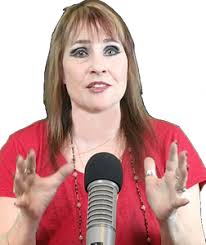
Few names resonate through the world of drumming journalism like Robyn Flans. In a male-dominated industry since its inception, the drumming world came to know Robyn’s work through Modern Drummer for nearly four decades. She interviewed the top names of the day, and she helped shaped the fledgling world of drumming journalism by being in the right place at the right time with the necessary skills to capture the essential stories and voices of our drumming heroes.
Interviewing Robyn has been a project on my mind for some time. I thought that drummers familiar with her work would enjoy reading about how her craft evolved, and certainly, up and coming drummers need to know where the origins of deep drumming ink came from. I sent Robyn twenty questions and gave her unlimited length to reply. What follows are her responses to a wide variety of topics.
But before we dive in, gotta mention that Hudson Music is about to release Robyn’s much-anticipated biography of Jeff Porcaro, aptly titled Jeff Porcaro – The Man and His Music. It can be pre-ordered from Hudson on their website https://hudsonmusic.com (as of Sept. 15 2020 ) prior to release and is scheduled for Amazon release on October 9, 2020.
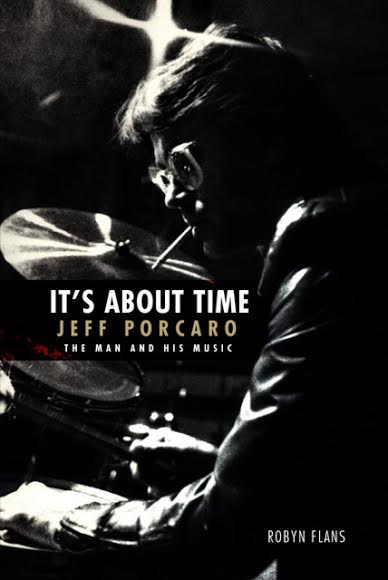
That said, let’s find out more about the first lady of drumming journalism…
-
-
1. How did you get into drumming journalism? What was your first introduction to journalism in general?RF: I’ll take the second part of this question first and go way back in time. I always loved to write, and the Beatles changed my life. Engineering a meeting with Paul McCartney at the Beverly Hills Hotel at thirteen years old with a few girlfriends (that’s a whole other story) was a dream come true, and one of my friends and I actually turned it into a story for one of the teen magazines of the times. Don’t even ask me why! So, I was [first] published in 1968 in a magazine called Teen Screen.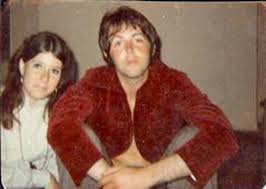 Then there was a teen magazine called Datebook that gave little credentials to teens and would publish their interviews. One particular night of that same year, a couple of members of the Nitty Gritty Dirt Band were answering the phone lines at a local radio station, and I said to my friend out of the blue, ‘Let’s call and ask them if we can interview them.’ They told us who was handling their press, I called the next day, and we set up an interview for Aug. 9th backstage at the Hollywood Bowl where the band was playing with a bunch of other groups. We showed up with our tape recorder and interviewed them, and when the photos didn’t come out, we had to go back to their next concert.That became a friendship with [the] band that has lasted through until today. We would find our favorite groups like the Rascals, call up to their hotel rooms, and tell them we worked for Datebook, and when we’d show up at their hotel doors, lo and behold, we were very young. But then again, so were they back then. And we prided ourselves on asking pretty good questions.But as time went on, I followed my original dream and went to UCLA as a theatre arts major, although I did take some journalism courses and was in a creative writing group. When I got out into the real world, I found out I was not cut out for the emotional dealings of an actor and pondered how I could combine my love of music with my love of writing. And that’s how that began.In about 1980, I contacted an editor at Billboard magazine named Jean Williams and asked if I could do concert reviews. It was pretty ballsy since I had never done anything before, and she was so great to give this then novice a chance. She told me to bring in clips. I didn’t have any, so I went to some local clubs and reviewed some of the local acts. I met with her and she gave me a shot. The first gig she sent me out on was Chicago’s concert at the Greek Theatre in Los Angeles after they changed labels to Warner Brothers and they had a huge party attached where they bussed press and VIPs up to the observatory for a Bacchanalian feast. It was an amazing first gig – but all that to say it gave me my next idea for your next question…to call Modern Drummer!
Then there was a teen magazine called Datebook that gave little credentials to teens and would publish their interviews. One particular night of that same year, a couple of members of the Nitty Gritty Dirt Band were answering the phone lines at a local radio station, and I said to my friend out of the blue, ‘Let’s call and ask them if we can interview them.’ They told us who was handling their press, I called the next day, and we set up an interview for Aug. 9th backstage at the Hollywood Bowl where the band was playing with a bunch of other groups. We showed up with our tape recorder and interviewed them, and when the photos didn’t come out, we had to go back to their next concert.That became a friendship with [the] band that has lasted through until today. We would find our favorite groups like the Rascals, call up to their hotel rooms, and tell them we worked for Datebook, and when we’d show up at their hotel doors, lo and behold, we were very young. But then again, so were they back then. And we prided ourselves on asking pretty good questions.But as time went on, I followed my original dream and went to UCLA as a theatre arts major, although I did take some journalism courses and was in a creative writing group. When I got out into the real world, I found out I was not cut out for the emotional dealings of an actor and pondered how I could combine my love of music with my love of writing. And that’s how that began.In about 1980, I contacted an editor at Billboard magazine named Jean Williams and asked if I could do concert reviews. It was pretty ballsy since I had never done anything before, and she was so great to give this then novice a chance. She told me to bring in clips. I didn’t have any, so I went to some local clubs and reviewed some of the local acts. I met with her and she gave me a shot. The first gig she sent me out on was Chicago’s concert at the Greek Theatre in Los Angeles after they changed labels to Warner Brothers and they had a huge party attached where they bussed press and VIPs up to the observatory for a Bacchanalian feast. It was an amazing first gig – but all that to say it gave me my next idea for your next question…to call Modern Drummer!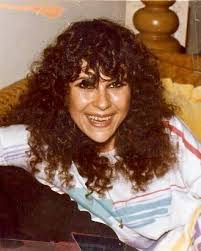 2. What was you first drumming assignment? Scale of 1-5, how difficult was it?RF: After that wonderful Chicago concert, I pitched Danny Seraphine to Modern Drummer. By then I had a few published concert reviews, and since MD was fairly
2. What was you first drumming assignment? Scale of 1-5, how difficult was it?RF: After that wonderful Chicago concert, I pitched Danny Seraphine to Modern Drummer. By then I had a few published concert reviews, and since MD was fairlynew, they took a chance on me. And it became a cover story, too, I don’t recall it being terribly difficult, although I’m sure if I went back and read it today I would see that I improved vastly through the years. Danny obviously liked it because we became friends from that day forward, and he in recent years he’s hired me to do most of his bio writing.
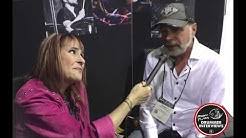 3. Favorite interview (s)?RF: Impossible to say! So so many of them. Obviously the two interviews I did with Ringo are a couple of the highlights of my life for Modern Drummer. But I have also worked for some other great publications such as People, Country Weekly, Mix and the Ventura County Star where I’ve had the opportunity to conduct some very deep, memorable interviews with such people as Linda Ronstadt, Criminal Minds star Joe Mantegna, Michael McDonald, and Vince Gill.
3. Favorite interview (s)?RF: Impossible to say! So so many of them. Obviously the two interviews I did with Ringo are a couple of the highlights of my life for Modern Drummer. But I have also worked for some other great publications such as People, Country Weekly, Mix and the Ventura County Star where I’ve had the opportunity to conduct some very deep, memorable interviews with such people as Linda Ronstadt, Criminal Minds star Joe Mantegna, Michael McDonald, and Vince Gill.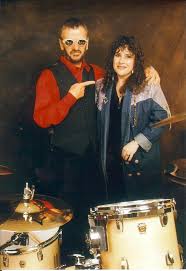 4. Toughest interview(s)?RF: Don Henley for MD because he was very unkind. He was extremely abusive to me – verbally and emotionally — and ultimately pulled the interview because I stood up for myself. Also Charlie Watts, only because when I arrived at the hotel in San Francisco for the interview, he had forgotten I was coming and had been up all night “with Mick and the boys” drinking. He was sloshed. And he continued to drink when we sat down in the lounge to talk and proceeded to test me as to whether I knew any of the old jazz drummers. He wouldn’t begin the interview and basically refused to talk about playing with the Stones. It wasn’t that he was intentionally mean like Henley; it was just the alcohol. In fact, after the sort of non-interview, he insisted on taking me to dinner in the hotel, and I complied since my flight home wasn’t for several hours.5. How do you conduct your interviews? Record verbatim, take notes over the phone? How do you conduct them now? What would you have done differently after so many years, if anything?RF: I’ve always used standard cassettes and recorders – even now. I had great Marantz broadcast recorders and little Sony handheld ones. Now they are very expensive because they are near obsolete, but it’s what I’m accustomed to.When I do phone interviews, I have a device that taps into the phone line, which goes into the recorder and tapes the conversation. Old school. I never taped over any of them, so I’ve actually been able to digitize them and offer them as audio interviews on my website www.robynflansdrummerinterviews.com .Haven’t had a chance to put many up since changing websites, but people enjoy hearing the uncut interviews in real time, with people laughing, breathing, dogs barking, phones ringing, etc.6. Do you play drums? Any instruments? How long?RF: I played piano for a little while when I was young. And no, I don’t play drums. Just love them.7. Did you ever study with any known drummers? Any you interviewed?[Note: Answer intentionally left blank because of above answer to question #6.]8. How has the drumming world changed in your opinion from when you first started out interviewing people? Attitudes? Professionalism? Student-teacher interactions? Drumming education in general?RF: I don’t think anything has changed in the “attitude” department, because as Steve Porcaro wrote, it’s really about “Human Nature.” Or upbringing. It’s important to have a good attitude and be professional if you’re a drummer or a plumber, and whether you have a good attitude or are professional or are even in the game for the right reason is who you are as a person, not some world change. There will always be the ones who are in it for the love of the music and those who are in it for stardom or money; those who show up late to gigs and don’t show respect for the love of their job or the person who employs them, and those who know better, those who are cocky and those who are humble, those who are self- centered and those who are selfless.Drumming education, of course, has expanded due to the Internet and the incredible amount of resources available, both in web teaching and all the drum clips of prior performances that have surfaced. That can also be a negative if person-to-person teaching is replaced completely. I know my kids were truly inspired by their band teachers and private teachers and that the in-person experience can’t be gotten on a computer.9. Who do you miss the most of those drummers we’ve lost?RF: Oh Lord, don’t get me started. Jeffrey! His friendship, his groove, his laughter, everything about him, daily.
4. Toughest interview(s)?RF: Don Henley for MD because he was very unkind. He was extremely abusive to me – verbally and emotionally — and ultimately pulled the interview because I stood up for myself. Also Charlie Watts, only because when I arrived at the hotel in San Francisco for the interview, he had forgotten I was coming and had been up all night “with Mick and the boys” drinking. He was sloshed. And he continued to drink when we sat down in the lounge to talk and proceeded to test me as to whether I knew any of the old jazz drummers. He wouldn’t begin the interview and basically refused to talk about playing with the Stones. It wasn’t that he was intentionally mean like Henley; it was just the alcohol. In fact, after the sort of non-interview, he insisted on taking me to dinner in the hotel, and I complied since my flight home wasn’t for several hours.5. How do you conduct your interviews? Record verbatim, take notes over the phone? How do you conduct them now? What would you have done differently after so many years, if anything?RF: I’ve always used standard cassettes and recorders – even now. I had great Marantz broadcast recorders and little Sony handheld ones. Now they are very expensive because they are near obsolete, but it’s what I’m accustomed to.When I do phone interviews, I have a device that taps into the phone line, which goes into the recorder and tapes the conversation. Old school. I never taped over any of them, so I’ve actually been able to digitize them and offer them as audio interviews on my website www.robynflansdrummerinterviews.com .Haven’t had a chance to put many up since changing websites, but people enjoy hearing the uncut interviews in real time, with people laughing, breathing, dogs barking, phones ringing, etc.6. Do you play drums? Any instruments? How long?RF: I played piano for a little while when I was young. And no, I don’t play drums. Just love them.7. Did you ever study with any known drummers? Any you interviewed?[Note: Answer intentionally left blank because of above answer to question #6.]8. How has the drumming world changed in your opinion from when you first started out interviewing people? Attitudes? Professionalism? Student-teacher interactions? Drumming education in general?RF: I don’t think anything has changed in the “attitude” department, because as Steve Porcaro wrote, it’s really about “Human Nature.” Or upbringing. It’s important to have a good attitude and be professional if you’re a drummer or a plumber, and whether you have a good attitude or are professional or are even in the game for the right reason is who you are as a person, not some world change. There will always be the ones who are in it for the love of the music and those who are in it for stardom or money; those who show up late to gigs and don’t show respect for the love of their job or the person who employs them, and those who know better, those who are cocky and those who are humble, those who are self- centered and those who are selfless.Drumming education, of course, has expanded due to the Internet and the incredible amount of resources available, both in web teaching and all the drum clips of prior performances that have surfaced. That can also be a negative if person-to-person teaching is replaced completely. I know my kids were truly inspired by their band teachers and private teachers and that the in-person experience can’t be gotten on a computer.9. Who do you miss the most of those drummers we’ve lost?RF: Oh Lord, don’t get me started. Jeffrey! His friendship, his groove, his laughter, everything about him, daily.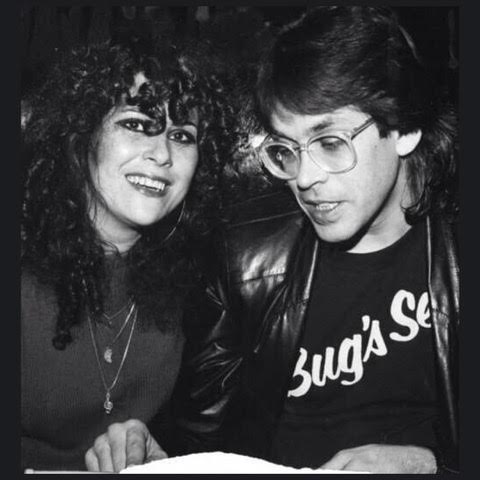 My dear friend Eddie Shaughnessy. He became one of my best friends during the writing of his book Lucky Drummer [Hudson Music]. The last several years of his life, I happened to live nearby his home and helped him out a lot, and we spent a lot of time together. Then as things began getting tougher for him, I ran his errands and did whatever I could for him. He helped me out, too. I miss him every day as well.
My dear friend Eddie Shaughnessy. He became one of my best friends during the writing of his book Lucky Drummer [Hudson Music]. The last several years of his life, I happened to live nearby his home and helped him out a lot, and we spent a lot of time together. Then as things began getting tougher for him, I ran his errands and did whatever I could for him. He helped me out, too. I miss him every day as well.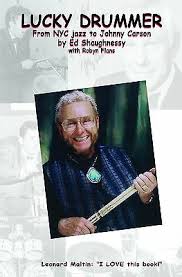 Larrie Londin and I were also very close friends. His passing broke my heart. I spent a lot of time with Larrie when he came to L.A. and also his family whenever I was in Nashville, and we gabbed on the phone so much that whenever I called the house and his wife Debbie answered, she would tease as she’d call him to the phone, “Larrie, your girlfriend is calling.”I truly have been blessed to have gotten close to so many wonderful people in the drum industry. While those are probably the closest who have left us, – two others come to mind that were also dear friends – Louie Bellson, who I first interviewed back in the ‘80s and continued to do so almost to his passing. And Earl Palmer who was one of the dearest people on the planet.
Larrie Londin and I were also very close friends. His passing broke my heart. I spent a lot of time with Larrie when he came to L.A. and also his family whenever I was in Nashville, and we gabbed on the phone so much that whenever I called the house and his wife Debbie answered, she would tease as she’d call him to the phone, “Larrie, your girlfriend is calling.”I truly have been blessed to have gotten close to so many wonderful people in the drum industry. While those are probably the closest who have left us, – two others come to mind that were also dear friends – Louie Bellson, who I first interviewed back in the ‘80s and continued to do so almost to his passing. And Earl Palmer who was one of the dearest people on the planet.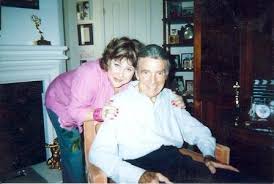 10. Who do you wish you could have interviewed?RF: Buddy and Keith Moon (although I count myself as very lucky to have seen Keith play live a few times with the Who).11. Why do you believe drumming journalism is important? What matters most? Is this happening in today’s drumming journalism world (print/on-line)?RF: Not just drumming journalism, but all facets of music journalism with all musicians. Guitar is just as important to the guitar players as drumming is to the drummers. It’s one thing to see them play on the Internet, but to hear what they are about, their techniques, philosophies, about their successes and failures, is important. I have always approached drummers as if they are more than just technicians. They are people, too. I think good drum journalism allows the reader a view into the person as well.12. Who inspired you as a journalist (in any medium)?RF: I’ve gone through phases. Mostly I appreciate broadcast journalists as far back as Walter Cronkite. Today I like Anderson Cooper and Jake Tapper.13. How long were you with Modern Drummer? Why did you leave, and what did you do afterwards?RF: I was an independent contractor with Modern Drummer for nearly 40 years. When my editor Bill Miller passed away from cancer, a new editor took over, and we had some artistic differences. I continued and still continue to freelance. For a period of about six years I wrote quite a bit for a local daily paper called The Ventura County Star, covering local events as well as celebrity profiles and really enjoyed it until, like most publications, their budget cuts last year put an end to that.For a good while I was enjoying a podcast, first radio and then video, but after a few years, became weary of that. I also started two websites – www.robynflansdrummerinterviews.com where I offer select audio interviews [and] www.robynflansmedia.com where I offer writing services. I still do quite a bit of work for Mix magazine, thank goodness!
10. Who do you wish you could have interviewed?RF: Buddy and Keith Moon (although I count myself as very lucky to have seen Keith play live a few times with the Who).11. Why do you believe drumming journalism is important? What matters most? Is this happening in today’s drumming journalism world (print/on-line)?RF: Not just drumming journalism, but all facets of music journalism with all musicians. Guitar is just as important to the guitar players as drumming is to the drummers. It’s one thing to see them play on the Internet, but to hear what they are about, their techniques, philosophies, about their successes and failures, is important. I have always approached drummers as if they are more than just technicians. They are people, too. I think good drum journalism allows the reader a view into the person as well.12. Who inspired you as a journalist (in any medium)?RF: I’ve gone through phases. Mostly I appreciate broadcast journalists as far back as Walter Cronkite. Today I like Anderson Cooper and Jake Tapper.13. How long were you with Modern Drummer? Why did you leave, and what did you do afterwards?RF: I was an independent contractor with Modern Drummer for nearly 40 years. When my editor Bill Miller passed away from cancer, a new editor took over, and we had some artistic differences. I continued and still continue to freelance. For a period of about six years I wrote quite a bit for a local daily paper called The Ventura County Star, covering local events as well as celebrity profiles and really enjoyed it until, like most publications, their budget cuts last year put an end to that.For a good while I was enjoying a podcast, first radio and then video, but after a few years, became weary of that. I also started two websites – www.robynflansdrummerinterviews.com where I offer select audio interviews [and] www.robynflansmedia.com where I offer writing services. I still do quite a bit of work for Mix magazine, thank goodness!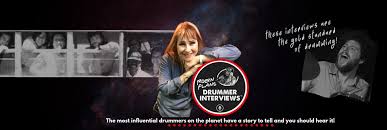 14. What projects are you involved with now?RF: In addition to the above websites and Mix, I recently finished work on a book on Jeff Porcaro. It should be released some time around fall by Hudson Music.15. Have you written any books? If so, what are the titles?RF: In addition to the above and co-author with Ed Shaughnessy on Lucky Drummer, I wrote three books early in my career – Musicmania (Sharon Publications, 1983), a compilation music history, Inside Duran Duran (Starbooks, 1984), an unauthorized biography, and Journey (Cherry Lane Music, 1983), also an unauthorized biography, but to date considered to be very in demand, since it’s out of print and really the only book of its kind.
14. What projects are you involved with now?RF: In addition to the above websites and Mix, I recently finished work on a book on Jeff Porcaro. It should be released some time around fall by Hudson Music.15. Have you written any books? If so, what are the titles?RF: In addition to the above and co-author with Ed Shaughnessy on Lucky Drummer, I wrote three books early in my career – Musicmania (Sharon Publications, 1983), a compilation music history, Inside Duran Duran (Starbooks, 1984), an unauthorized biography, and Journey (Cherry Lane Music, 1983), also an unauthorized biography, but to date considered to be very in demand, since it’s out of print and really the only book of its kind.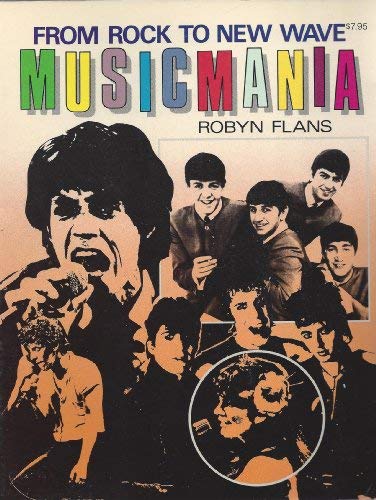
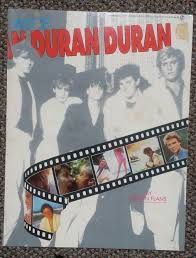
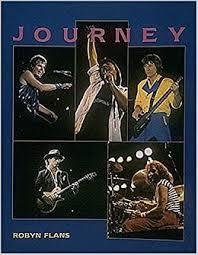 16. What advice or pieces of advices would you give to today’s budding drum journalists?RF: There is very little print journalism left today. I don’t know if I would tell anyone to get into journalism, period! Sadly. I guess the only thing to do is if you are passionate about it, contact whatever outlets there are and be willing to take very little money, because mostly they have become online versions of their former selves since their advertising earnings have decreased, and obviously it trickles down to all those who contribute.The only journalism that really exists anymore is broadcast journalism…17. Did you ever have a nightmare of a technology issue related to an interview (lost notes, disk crashed, equipment stolen or broken)?RF: In my 40 years, I have probably had a handful of technical nightmares where either my recorder batteries failed or were failing so that the voices sped up like chipmunks or the cassette was flawed, or [like] just the other day, I was on the phone with an audio engineer, and I hadn’t noticed the phone connect wasn’t plugged in all the way, and it did not record his voice. I had to do the interview all over again. It’s a drag when it happens, but if you are apologetic, everyone understands.18. Do you speak any foreign languages, and have you read any drum magazines in those languages? If so, what were they, and what did you think of the publication?RF: I speak some Spanish, although not fluently, but it actually did help me in some assignments with the Ventura County Star. I’ve had some of my work published in German and Japanese publications. I cannot read them unfortunately, but they look nice.19. What were some of the challenges you faced as a female journalist in a male-dominated drumming world? Any problems? Well received? No real issues?RF: I do think drum journalism – and even music journalism on the whole — is somewhat of a boy’s club, but I’ve managed to carve a niche somewhere in it and gather respect, for the most part. Before social media, though, unless you met me at a NAMM convention, most people assumed I was a male, which, in itself, is sexist. I’ll never forget the expression on Steve Smith’s face the first time in the ‘80s I showed up to interview him. Thankfully I won him over in a matter of minutes, but I knew he was not expecting a female. Since then we’ve become good friends, and he even hired me last year to write the major bio in his beautiful coffee table art/drum book, The Fabric of Rhythm [check status, include publishing info].
16. What advice or pieces of advices would you give to today’s budding drum journalists?RF: There is very little print journalism left today. I don’t know if I would tell anyone to get into journalism, period! Sadly. I guess the only thing to do is if you are passionate about it, contact whatever outlets there are and be willing to take very little money, because mostly they have become online versions of their former selves since their advertising earnings have decreased, and obviously it trickles down to all those who contribute.The only journalism that really exists anymore is broadcast journalism…17. Did you ever have a nightmare of a technology issue related to an interview (lost notes, disk crashed, equipment stolen or broken)?RF: In my 40 years, I have probably had a handful of technical nightmares where either my recorder batteries failed or were failing so that the voices sped up like chipmunks or the cassette was flawed, or [like] just the other day, I was on the phone with an audio engineer, and I hadn’t noticed the phone connect wasn’t plugged in all the way, and it did not record his voice. I had to do the interview all over again. It’s a drag when it happens, but if you are apologetic, everyone understands.18. Do you speak any foreign languages, and have you read any drum magazines in those languages? If so, what were they, and what did you think of the publication?RF: I speak some Spanish, although not fluently, but it actually did help me in some assignments with the Ventura County Star. I’ve had some of my work published in German and Japanese publications. I cannot read them unfortunately, but they look nice.19. What were some of the challenges you faced as a female journalist in a male-dominated drumming world? Any problems? Well received? No real issues?RF: I do think drum journalism – and even music journalism on the whole — is somewhat of a boy’s club, but I’ve managed to carve a niche somewhere in it and gather respect, for the most part. Before social media, though, unless you met me at a NAMM convention, most people assumed I was a male, which, in itself, is sexist. I’ll never forget the expression on Steve Smith’s face the first time in the ‘80s I showed up to interview him. Thankfully I won him over in a matter of minutes, but I knew he was not expecting a female. Since then we’ve become good friends, and he even hired me last year to write the major bio in his beautiful coffee table art/drum book, The Fabric of Rhythm [check status, include publishing info].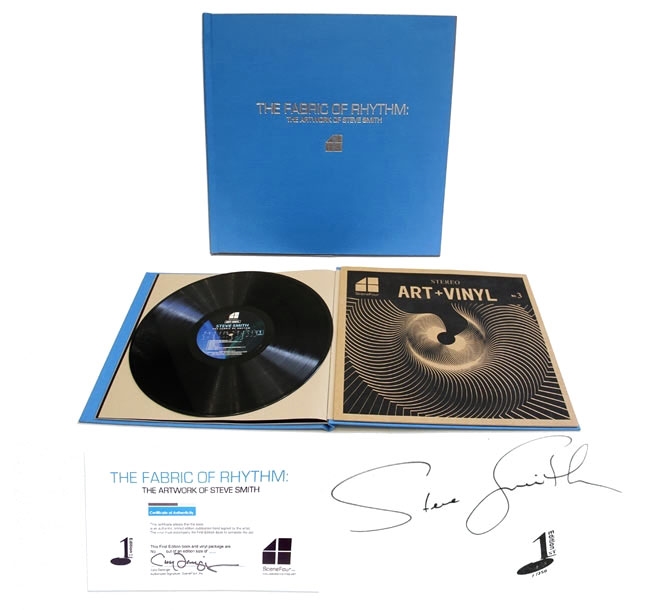 20. And last but not least: How does it feel to be interviewed?RF: The first couple of times it was very strange, but it’s gotten a little easier and this format – writing – is much easier than speaking or video because obviously it’s my preferred format.
20. And last but not least: How does it feel to be interviewed?RF: The first couple of times it was very strange, but it’s gotten a little easier and this format – writing – is much easier than speaking or video because obviously it’s my preferred format.
-
Thank you, Robyn, for sharing your story and contributing so much vital writing to the world of drumming. Countless drummers everywhere owe much of what we know about our heroes thanks to you. Best of luck in all your future journalism and writing ventures!